
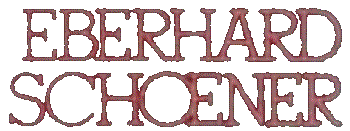



 |
 |
 |
 |
 |
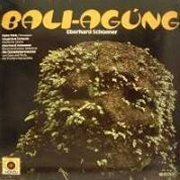 |
Bali-Agúng (1976, 39.50) ***½/TT½Tjandra (der Mond)Rawana (der Dämonenkönig) Nadi (in Trance Sein) Surija (die Sonne) Ramayana (Balinesisches Märchen) Ketjak - Rock Agüng Raka - Dalang (Agüng der Schattenspieler) Gong - Gede (Orchester) |
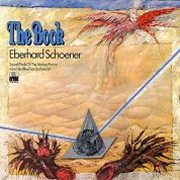 |
The Book (1977, 37.17) ****/TT½ |
|
| Creation Paradise The Flood Genesis Exodus Old Pictures To Anthony B. A Feeling of Passion |
Bruckner's Seventh - The Adagio Expectation |
|
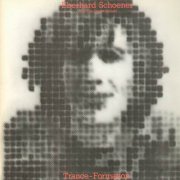 |
Trance-Formation (1977, 38.59) ***/T½Falling in TranceShape of Things to Come Frame of Mind Signs of Emotion Trance-Formation |
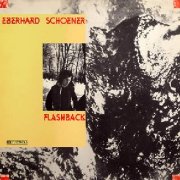 |
Flashback (1978, 41.20) ***/TTTTrans-AmWhy Don't You Answer Only the Wind Powerslide Flashback Epilogue Rhine-Bow Loreley Magma |
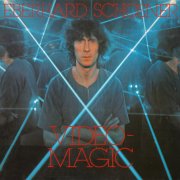 |
Video Magic (1978, 44.58) **½/TOctogonSpeech Behind Speech Natural High Code-Word Elvis Video-Magic Night Bound City San Francisco Waitress Koan |
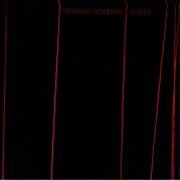 |
Events (1980, 44.32) **½/½Fairlight 80Margret: a l'Ombre de Jeunes Filles en Fleurs When Colours Die Gam-Bang Events: A la Recherche du Temps Perdu Inversion Magical Echoes: Le Temps Retrouvé |
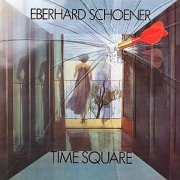 |
Time Square (1981, 49.44) **/TRadiant WomenThe Nine Lives of a Cat Gramercy Park Hotel Da-Da Voyage Take the Zoom Time Square Ich Schau' ins Licht |
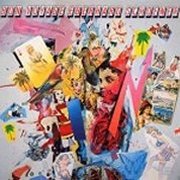 |
Bon Voyage (1986, 43.33) ****/½Bon VoyageRondo Bavarese Duo in D I'll Wait for You Trio in D Poem Pavane |
Current availability:
Mellotrons used:
Eberhard Schoener is a respected German musician who, I believe, has composed classical works, not to mention his collaboration with Deep Purple's Jon Lord on his Windows suite. For a decade or so from the early '70s, Schoener released a whole slew of albums, very loosely in the German synth/Krautrock style, although I'm sure students of the genre would place him more accurately. Going by the pictures on these albums, he wasn't a young man 25 years ago, so I'm presuming he's still alive, though if so, I suspect he's moved back into the classical field. There seems to be some confusion re. his discography, too, with various albums being repackaged under new titles and compilations packaged as new releases, which I'll try to clear up below.
Bali-Agúng is a semi-collaboration with a Balian Gamelan orchestra, who feature on several tracks. Schoener is credited simply with 'Moog Synthesizer, Mellotron', accompanied by a German guitarist and British drummer Pete York (of Hardin & York), although neither of them plays that much. It's a decidedly mixed bag, being a strange mixture of ambient synthscapes and pre-'world' music, although the two genres only rarely collide, with most tracks tending to be either one or the other. On the whole, the tracks containing Mellotron tend to be the non-ethnic ones, although Agüng Raka - Dalang has elements of both styles. Reasonable Mellotron strings and flutes on three tracks, but don't go out of your way to track this one down.
The Book, subtitled 'Sound-track of the motion picture "Und die Bibel hat doch recht"', or 'History of the Bible', was his second release after Windows and definitely falls into the Tangs/Schulze general area, with much keyboard work and the occasional distorted guitar lead from none other than a pre-Police Andy Summers. Schoener plays Moog, piano and Mellotron, although another two keyboard players contribute, too. The music is frequently haunting, often hovering on the edge of dissonance without ever quite tipping over into full-blown Bartok, although A Feeling Of Passion gets close. Creation opens with fairly average Mellotron strings, with a flute part appearing later in the piece, but is easily outclassed by the cellos and blistering strings of side two's Exodus, complete with another Summers solo. To Anthony B is more of the same, but his adaptation of Bruckner's Seventh throws a note of confusion into the mix; there's no orchestra credited, but if it's Mellotron, it's exceptionally well-arranged, sounding indistinguishable from real strings.
Schoener's second album of '77, Trance-Formation, pretty much does what it says on the tin, being a meditative album of synthscapes, (real) choirs and Summers again, in mellow mood, with the only real sequencer use being on parts of the lengthy closing title track, with Summers letting rip for the only time. The album features some of Schoener's longest tracks, with two in the twelve-minute range and only five overall, although the church organ-heavy Signs Of Emotion is under three minutes, sadly, as it's one of the nicest things here. Schoener adds Mellotron strings to all but one track (the title track being the exception), although the only one with any great presence is Frame Of Mind and he still buries it under layers of reverb.
The confusion with Schoener's discography begins with the following year's Flashback, the point at which Summers begins to introduce his new Police bandmates into the frame. Sting handles vocals on several tracks, unfortunately, as his falsetto doesn't fit the material at all; I can only assume that Schoener was keen for him to do so, though whether or not he considered it a good career move is unknown. Side one is far more mainstream-orientated than previous Schoener releases, although the flip features longer, more typical material, despite some Sting vocalising. Schoener actually gets plenty of Mellotron in, with background strings on opener Trans-Am and the title track, strings and flutes on Why Don't You Answer, strings on Only The Wind and major string parts on Rhine-Bow and Loreley, actually making this his premier Mellotron album.
Video Magic, later that year, is actually the original album of that title and comprises approximately half of the following year's Video-Flashback. Unsurprisingly, the album's a major stylistic change for Schoener, although there's still a little 'traditional' Schoener fare to be heard; Natural High is a straightforward rock song, Code-Word Elvis is a cheesy '40s-ish number with really inappropriate drumming, while San Francisco Waitress is thoroughly bizarre, being what appears to be a newspaper report of a ridiculous court case, sung by Sting over a sparse, jazzy backing. Well, it's different... Very little Mellotron this time round, with merely a major string part on Speech Behind Speech and a minor one on Natural High. The confusion runs deeper with 1979's Video-Flashback, a compilation of Flashback and Video Magic, funnily enough. All three of The Police are pictured on the rear sleeve, although most of the other participating musicians aren't. Is that the ring of 'cash-in' I hear? Incidentally, 1986's Music From Video-Flashback and Flashback confuses the issue still further; these may be new recordings, or simply another compilation. Who knows?
1980's Events takes the ethos of Schoener's two previous releases a stage further, being highly dodgy experimental synth-pop (if there can be such a thing), with vocals from one Clare Torry, best known for her contributions to Dark Side of the Moon (Gam-Bang has some suitably 'Great Gig in the Sky'-type wailing). The album actually seems to be a concept piece based on Proust's 'A la Recherche du Temps Perdu', which is a tad pretentious, to be honest and is also one of the first recorded outings for the legendary (and legendarily expensive) Fairlight CMI, the world's first (?) useable sampler. Its low sample rate and lack of multi-sampling capability are risible by modern standards, but it was a revelation at the time. For better use, however, listen to Peter Gabriel's 4 or Kate Bush's Never for Ever or The Dreaming. On the Mellotron front, there's not a lot to report, really. It's difficult to tell, but I think there's a few string chords and a flute melody on Events itself, but I wouldn't be prepared to swear it under oath. It's interesting to note that side two is noticeably better than side one, with less vocal stuff and more of his older electronic style, although, in all honesty, it isn't particularly good; there's a couple of so-so electronic-ish tracks, but I really wouldn't bother if I were you.
Events is a classic compared to Time Square, though. Side one's bloody awful, with Schoener, er, 'singing' on several tracks (unless it's the George Beck listed in the credits) and Clare Torry back again (singing very nicely, admittedly) on the appalling The Nine Lives Of A Cat. Once again, it picks up slightly on the flip, but only in comparison to the godawful first side, although the title track isn't too bad. Very little Mellotron again, with a couple of string chords on Da-Da and some distant choirs on Time Square. Give it a miss.
However... Several years on, Schoener released Bon Voyage and would you believe, it's excellent? OK, so the vocal track (I'll Wait For You) and Sting's narration (Poem) are less than wholly necessary, but almost every instrumental piece, including the side-long title track, are most worthy of your time. I'm not even sure what's so good about them; Bon Voyage itself has loads of percussive drive allied to great instrumental work and Schoener's church organ work on Rondo Bavarese is magnificently understated, but they simply have... spirit. Next to none of the credited Mellotron, with Rondo Bavarese having a few seconds of background choirs and possibly strings, but buy this album because it's worth hearing, not for the Mellotron.
So; everything up to Flashback worth the effort, Video Magic a bit iffy and as for Events and Time Square, the less said the better, leaving Bon Voyage as a late-career highlight.
Appendix: After searching long and hard for a Schoener discography (pre-Discogs, you understand), I found one including tracklistings on, of all things, an Andy Summers fan site. It only lists the albums on which Summers plays, but that seems to cover the disputed territory above. And... all it's done is to complicate matters considerably. 1977's Trance-Formation contains five tracks, while the following year's Flashback contains nine, seven of which are new. OK so far? Video Magic, also from '78, is described as 'the UK issue of Flashback', although it contains three new tracks and five from Flashback, while not crossing over with Trance-Formation at all. Unfortunately, Flashback has two songs not on either of the other two mentioned so far. Still with me? Wish I was... Video Flashback is listed as 'the US issue of Flashback', although it also appeared in Britain and is, in fact, a straight reissue of Flashback. Hoo-bloody-rah. Then the US version of Video Magic appeared, which only shares four tracks with the original, while managing three new ones and to finish off (?), Music from 'Video Magic' and 'Flashback' is a complete hodge-podge of previously-released tracks, plus yet another new title. Confused? Good. Me too.
Did Eberhard Schoener ever play live? He never released a live album, but that means nothing, frankly. If he did, did he use a Mellotron on stage? If so, did anyone ever record it? Answers on the back of a used postage stamp to the usual address.